(Above: Scene from the 2016 film “The Lost City of Z.”)
“Surely I was made for some other purpose than this?” – Evelyn Waugh, “Brideshead Revisited”
I was the last one born into my family. I grew up mainly surrounded by my mother and two sisters. My older brother justifiably regarded me as an utter nuisance mainly because I occasionally sneaked into his room and accidentally broke some prized possession. I got along better and was appreciated by my sisters who always regarded me as their baby brother. I often played with a girl my age that lived across the street not because I preferred the company of girls, but she was the only kid who was around. I didn’t see my father as much as I liked. He was an immigrant, uneducated, but smart and highly ambitious. All of my teachers were female. The Catholic priests in the adjacent church were distant and unapproachable. They often seemed to act and move at the whim of the religious sisters in tight sweaters and short skirts who ostensibly controlled the school and the parish. At times, my sole contact with masculinity was through a boyhood adoration of television heroes: Robert Conrad, Lee Majors, and Adam West.
At home, in a protective environment, surrounded by my mom and sisters, I was an exuberant, bouncy, and talkative child. At school, I cringed. Uncomfortable around boys, I gravitated towards other misfits: those who were overweight, unathletic, or annoyingly hyperactive. To varying degrees, we were all teased, but I always felt singled-out. The other bullied boys sought cover in self-deprecating humor or by remaining strong in a weak but largely incohesive cluster. I didn’t. I was never really part of the group. Everything bothered me. Every slight, every unkind word, and every disdainful facial expression I could remember in detail. While the tormenting aimed towards my fellow semi-rejected compatriots began to subside as we all grew older and entered puberty, mainly because they simultaneously began to consistently stand up for themselves and collectively matured beyond the level of a frightened boy, I remained curiously stuck in place. I often sought solace in an imaginary world where a savior would rescue me – in daydreams, Clint Walker or Steve McQueen rode up on their horse and took me away; later it was Don Johnson in his Ferrari. Yet, all of these fantasies of salvation by a heroic male were pre-sexual.
Subsequently, as hormones began to uncontrollably rage through my body, as is typical with most adolescents, I became increasingly preoccupied with films, fan-magazines, and entertainment. At the time, the movie with the largest cultural impact in generations, perhaps since “The Wizard of Oz,” was the first installment in the “Star Wars’” series. I was peculiarly fascinated with the fatherless, lonely, and isolated Luke Skywalker who found a compassionate and supremely self-confidant benefactor and teacher in Obi Wan Kenobi. The all-too-brief early scenes in which Obi Wan tries to instruct the unsure Luke in handling the Lightsaber were magical to me and I longed to be a part of them. Approximately at the same time, or within a few short months, I discovered a perverse corollary in gay pornography.
The almost supernatural allure of gay porn, especially in the uninitiated and the inexperienced, is that it continually explores and reenacts the deepest innermost fears of homosexual men. This drama is played out through the perennial trope of the kind and masculine older man who instructs his naive, slightly effeminate, younger partner. At first, the reality of all male sex was sort of shocking, but the intensity and intimacy connecting the participants was immediately captivating. Therefore, when I traveled a short distance from my home to San Francisco at age eighteen, I thought I was finally joining the once secretive and rejecting ranks of men.
Although it was the near height of the AIDS crisis, and infection meant a swift and grisly death, crossing the rather distinct threshold back then that demarcated the boundaries of the predominantly gay Castro District, I felt nervous, but also oddly at ease and secure. Up till that point, my only exposure to this neighborhood was through the local television reports detailing the deaths of once beautiful and talented men. I didn’t know what I would find: a ghost-town or a morgue. I hoped that one shinning knight had survived the devastation and rose above the putrefaction. It sounds absurd, but I thought he was waiting there for me.
Therefore, I was surprised to discover an incredibly lively street scene on a Saturday night with the adult bookstores and dance clubs literally busting forth an overcapacity crowd of well-sculptured and healthy-looking handsome men. Although the ravages of disease and death were almost everywhere, in the euphoria of the moment, if you didn’t look for it, the men with sunken cheeks and purplish blotches on their necks went relatively unnoticed.
The champion I’d longed for since childhood quickly arrived with a tap on my shoulder about five or ten minutes after I entered a gay bar for the first time. That singular instance of human contact meant more to me than anything that had occurred in my life so far. It was as if I were Adam on the Sistine Chapel immediately brought to life by an outreached hand. Probably, the last time a man touched me so confidently and forthrightly was when I was boy in my father’s arms. And, it felt good. Instantaneously, I was accepted and I knew that I found somewhere I belonged.
In the beginning, stumbling into San Francisco was like finding an oasis after wandering alone and sun-scorched through an endless desert. Except, as is the case with many illusions that we come upon when in the midst of hopelessness and famine, it proved to be a mirage.
Whosoever drinketh of this water, shall thirst again; but he that shall drink of the water that I will give him, shall not thirst for ever: But the water that I will give him, shall become in him a fountain of water, springing up into life everlasting.
The closer I physically got to men through sex, the more disappointed I became. From the day I “came-out,” I was understandably reticent to engage in the riskiest behaviors, because I knew the possible consequences. However the safest routes of mutual pleasure involved something like masturbating with a buddy and the awkward shared closeness of a lover burying his face in my crotch left me with this pervasive unsettling sense of detachment.
Consequently, since one well went dry, I made the conscience decision to explore other more profound forms of sexuality. Because, I believed that everything was simply splattered on the surface, I needed it to go deeper inside. Yet, it too was instantly gratifying then surprisingly shallow. At first, the bonding was mind-numbing with the right man who masterfully held tight and guided you through the initial pain. However it never seemed effortless, natural, or spontaneous. It was always necessitated by a preconceived forethought and willingness to go through the indispensable steps. The experience conceivably rivaled the endurance required to withstand the grueling manhood initiation rites promulgated by certain cultures. When I was in my early-twenties, I met an older man who wanted a long-term relationship. At that time, I wanted that as well. The night we first met, we had sex at my place as he was an out-of-town visitor. But right away, he invited me to stay over a long weekend with him at his home. I knew I wanted to be ready, so I began to prepare for any possibilities. During the several hour drive to where he lived, I soiled myself. For the process of anal cleanliness usually involved enemas and douching. Only, sometimes, I was especially cautious and used laxatives – leaving me with a lot of residual gas. And, after just a couple of years of receptive anal sex, my ability to differentiate flatulence from a bowel movement proved highly inaccurate.
I pulled over somewhere on the side of the road, tried to clean myself as best I could and dumped the dirty underwear. I was aggravated and disgusted with myself. I thought: “What am I doing?” I wanted to turn around and go home. Then I remembered this man that I liked – and I wanted him to like me; he was waiting for me. So, I got back in the car and drove on.
As I expected, we had sex that night. He was impressed and said: “You were born to bottom.”
Several years later, I packed up my belongs and left San Francisco headed back towards my parent’s house. Only, I made two stops beforehand: to my proctologist and to a Catholic church. The physician knew me for many years and treated a variety of ailments from anal fissures to protruding hemorrhoids. However, I quit going to him a few years prior because I had sort of given up. I was tired of pretending and I was tired of uneasily sitting in his waiting room; it was humiliating – I felt like a woman going to see her gynecologist. One visit, my fear became a reality when the doctor diagnosed my current complaint as a yeast infection. After that, I attempted the best I could to treat my own battle wounds with over-the-counter medications and I slowly got used to bleeding rectally on a near daily basis.
I made an appointment, told the nurse it was an emergency, and saw him the next day. He recommended immediate surgery. My next stop was at the local Catholic parish. I think I wanted to go to Confession, but I didn’t know what to do. The congenial priest invited me into a large meeting room and we talked. He looked bemused and perplexed when I described my unhappiness as a “gay” man and the deprivation I had endured. I told him I was leaving the area, but he thought I should stay and try to settle down with someone; after all, God understood these human difficulties – especially in my case: “I had been born gay.” I ignored his advice, but I did find a surgeon in my hometown. He took a cursory look at my backside and asked: “Do you engage in anal sex?”
The curious attitude of this priest, even though he literally lived at the center of probably the largest and oldest gay community in the United States is unfortunately indicative of many laymen, religious, and members of the clergy who take an interest in LGBT ministry. Inspired by a desire to be non-judgmental and welcoming, or due to an inner struggle with their own identity, these men and women who represent the Church often go out of their way to deliberately ignore the destructive aspects of the homosexual subculture. Instead they focus on those who apparently conform to a simulacrum of a heterosexual marriage. In these same-sex couples, they commonly find antipathy towards the institutional Church outside of the Catholic gay-affirmative network of ministries and parishes that are typically located in or near affluent urban neighborhoods. Therefore, their experience and level of engagement is rather limited and narrowly focused. And, in their ambition to somehow divinely ordain the homosexual orientation, they deny the physiological and psychological unsustainability of same-sex relationships. Jesuit James Martin recently said:
God made you this way. You are wonderfully made, just like Psalm 139 says. You were knit together in your mother’s womb this way, you know, it’s a mystery why you were made this way, but this is part of your identity.
There are several problems with his or any “born this way” argument. But first of all, Martin also wrote that the homosexual orientation involves: “the deepest parts of a person—the part that gives and receives love…” With regards to gay men, within a relationship, they can give and receive love through a full spectrum of emotional and physical interactions. In the sexual sphere, this typically involves mutual masturbation, oral sex, and or anal sex. Yet, as with heterosexual couples, gay men understandably desire the closeness which oftentimes only intercourse can impart. However the anus, unlike the vagina, is wholly unsuited to accommodate the penis. As I soon discovered in my own sex life, no matter how gently practiced with every possible “safe-sex” precaution, anal sex still damages the body.
- Gay men are 140 times more likely to become newly diagnosed with HIV or syphilis than heterosexual me;
- Anal cancer risk is 32 times higher in HIV-negative gay or bisexual men than in the general U.S. population;
- In San Francisco, infection rates of gonorrhea are more than 8 times higher among gay men than among straight men.
Men who have sex with men are also more likely to contract hepatitis C and, even in nations with a history of LGBT civil rights and tolerance, are at increased odds of suffering from mental illness.
Did God ordain this in the womb?
There is something else going on. I pondered this question for many years. In the early-1990s, when funerals for those who were once young and magnificent became all too commonplace, I sometimes wondered why gay men had been chosen randomly for this unusual form of death and destruction. Then, the rhetoric remained that heterosexuals were just as much at risk for HIV as the rest of us; I thought, we were merely the first to suffer; according to the latest CDC report: 83% of all HIV diagnosis among males were from 2% of the population – gay men. But was something fundamentally wrong with homosexuality that ultimately materialized in the biological? I couldn’t see it. Then, although anal sex was painful, and the alternative of jacking-off another guy was less than completely rewarding, I didn’t think so. Many years afterward, I reread “And the Band Played On” by Randy Shilts. Published in 1987, the book is one of the few detailed examinations of male homosexuality that is largely unsullied by self-serving political motivations. The passage which immediately struck me was this one:
Promiscuity was rampant because in an all-male subculture there was nobody to say “no” – no moderating role like that a woman plays in the heterosexual milieu. Some heterosexual males privately confided that they were enthralled with the idea of the immediate, available, even anonymous, sex a bathhouse offered, if they could only find women who would agree. Gay men, of course, agreed, quite frequently.
I saw this scenario play out on an individual and community wide basis. As a randy always-sexually primed male in his late-teens and early-twenties, I thought something was horrifyingly wrong when I first encountered the glory-hole culture of San Francisco. At first I partook in the quick release to be found by receiving fellatio from a formless human on the other side of a wall where our only connection was a small waist-high opening just large enough to pass a clenched fist through. Taken to the extreme, some men would back up their buttocks against these glory-holes and engage in receptive anal sex. At the time, I was sporadically bisexual, and to women, just the thought of partaking in such sexual acts was unimaginable. As I learned, female sexuality often depended upon romance and foreplay leading to what is sometimes crudely described by men as being “wet.” There is no such biological function in gay men with regards to the anus. Even in that, the possibility of intercourse requires artificial intervention through copious amounts of lubricant. This is metaphorical for the necessity of outside agency and scientific advances in order to keep the gay experiment viable; from antivirals to PrEP – without these medical miracles, the gay male community would have mostly burned itself out a decade ago. Hence, a collapse in infrastructure due to global natural disasters or societal unrest would prove devastating. In an instant, there would be a return to biological imperatives. I passingly thought about that as I waited for a third surgery to correct my colorectal problems – in a previous age, I would have bled out and died.
I was not born to die.
Recently, I say a remarkable film that was sadly ignored by many: “The Lost City of Z.” While a highly fictionalized account of the life and adventures of the British explorer Percy Fawcett, “The Lost City of Z” is extremely revelatory in terms of exploring the motivations and traumas which exist in the gay male psyche. For the most important subplot of the movie touches upon the indelible power of the father/son relationship and the lengths a lonely and abandoned boy will go to reconnect with something he feels distant from.
Essentially a horrible father, as depicted in “The Lost City of Z,” Fawcett is an obsessed and self-absorbed man; his driving ambition is to restore his family honor which has fallen into shame through some fault of his own father. He is a modern Galahad out to redeem his father Lancelot. But in his determination, he seems to almost forget his family – abandoning them for years at time as he chases after a dream of a lost city hidden in the Amazon jungle. Proof of his discovery will bring respect and prestige, but his fixation runs deeper. The real Percy Fawcett was a strange character who came under the spell of the occultist Madame Blavastky (briefly referenced in the film), and her fantastical tales involving a race of supermen. Jack, the eldest of the two boys, understandably becomes close to his mother and highly protective of her – almost taking on the role of surrogate husband. When the father does reappear they are at odds resulting in hatred from the son. Situations such as this are not unusual in the dysfunctional family dynamics that surround pre-homosexual boys who later come-out as gay.
Returning to his family after a failed expedition that ended in semi-disgrace, Fawcett is soon ushered off to war where he is almost killed. At that point, there is an odd reconciliation between Fawcett and his son – with the once hostile boy growing in a near compulsive adoration for his father and his past exploits. Still physically impressive and sizeable, Fawcett, next to his more diminutive son, is solidly bigger than life in appearance and character and Jack perceives this. He understands that his own link to manhood hangs on his father. Then, after years of living in seclusion, Fawcett, compelled by his son, sets out to make one last rather reckless journey to the Amazon with a single companion – Jack.
The best scenes occur at the end of the film when Fawcett and Jack move further and further into the jungle while their relationship as father and son, as well as older more experienced man and untested protégé, grows and intensifies amidst the constant struggle to survive. But the end of their journey is symbolically profound in its depiction and implications.
Captured by a group of cannibals, Fawcett and Jack are bound and tied and then forced to take part in a strange male ritualistic ceremony. Knowing that they are about to die – father and son, brought to this final inconceivable place of vulnerability, tenderly look at each other and Jack quietly says: “I love you father;” then, Fawcett does the same: “I love you son.” In death, the life-long breach between father and son is finally resolved. It’s reminiscent of “The Last Song” from Elton John in which a young man dying of AIDS reconciles with his estranged father. The film shows the great lengths a boy will go in order to achieve some sort of resolution, to the point of death, with the oppressive suppressed memory of masculine abandonment and abuse.
While some aspects of our individual being are certainly “knit together” in the wombs of our mothers – such as eye and hair color, but our future behavior is not predetermined in utero. Was I destined to one day desire that a man should anally penetrate me? Or did something happen later? For if there is a common element in the lives of gay men it does not occur before birth, but in childhood. Even Richard Isay, a psychiatrist, psychoanalyst and gay-rights advocate, who was instrumental in changing the way the mental health field approached the LGBT community, had to admit that:
The majority of gay men, unlike heterosexual men who come for treatment, report that their fathers were distant during their childhood and that they lacked any attachment to them. Reports vary from “my father was never around, he was too busy with his job,” to “he was victimized by my mother, who was always the boss in the family,” to that of the abusive, unapproachable father.”
Hans Thoma, “The Grail Castle” (1899)
What happened in the womb had nothing to do with what happened later. No male child was born to have a disinterested or abusive father or to experience persecution and rejection from other boys. While many men have lived through similar tortures, some of us, a relative few, handled these difficulties in a certain way. For the most part, we sought healing through a sexual relationship with other men; in the era of AIDS, we risked much, but we were willing to chance death in order to have at least a momentary reprieve from our persistent thoughts of uncertainty and regret. Like the son of Percy Fawcett, we rushed forward, somewhat oblivious to the risks. But we were compelled to act – to reach towards that which had been denied to us.
We were certainly not born “gay,” but we were created with an unquenchable desire to know God. Somewhere along the way, that need for the transcendent shifted, and we rushed upon that which was immediately within our grasp – but even that slips away. Quickly we discovered that our deepest longings remained painfully unfulfilled. The sorrow of my life is the realization that many stayed and perished rather than taking the chance and venturing beyond what had become the comfortable and the familiar. Only it’s incredibly difficult to break away from the myopia of the quest; because men, even in a wounded state, are singularly focused on an image of redemption. And, it is in this that many lost young men find homosexuality to be astonishingly attractive – because there is a sense of adventure, rebellion, and transgression in seeking out something which is lost and must be recovered. This concept was effectively exploited in homoeroticism by fascist regimes from Sparta to Nazi Germany. Also, in its apparent heroism, it’s clearly reminiscent of the grail quest. But there is a pervasive gloom of sadness, in that this supremely masculine endeavor that eventually deflates and stultifies those who start out enthusiastically then progressively become sullen as the journey seems to never end. Some collapse altogether and seek shelter in the reimagined confines of a protective family. In a sense, it’s a return, not to a moment before birth, but to childhood.
…unless you be converted, and become as little children, you shall not enter into the kingdom of heaven. Whosoever therefore shall humble himself as this little child, he is the greater in the kingdom of heaven.
My own salvation fittingly happened rather modestly and when I was least expecting it. One day I realized that I just couldn’t go on any longer. At least for me, this wretched journey to nothing was over. So I picked up my head and turned around. I started for home. The compulsion towards a final reunion with the source of pain is a recurrent theme throughout human history from the parable of the “Prodigal Son” to gay male doppelganger Dorothy Gale and her manifesto that “There’s no place like home.” To a certain degree, even Luke Skywalker, the son of the manically possessed Darth Vader, knows that his destiny is forever intertwined with that of his father and his own past. I had arrived at the same conclusion. I knocked on my parent’s door – I was broken, bleeding, and humiliated. They embraced me, but there is a spiritual reconciliation that goes beyond the body when that which was lost is truly recovered. I returned to my childhood, and to the place of my birth. The boastful illusions that once explained everything so neatly and perfectly slowly faded into oblivion. From this new beginning, I could start again and reclaim the man I was always born to be.
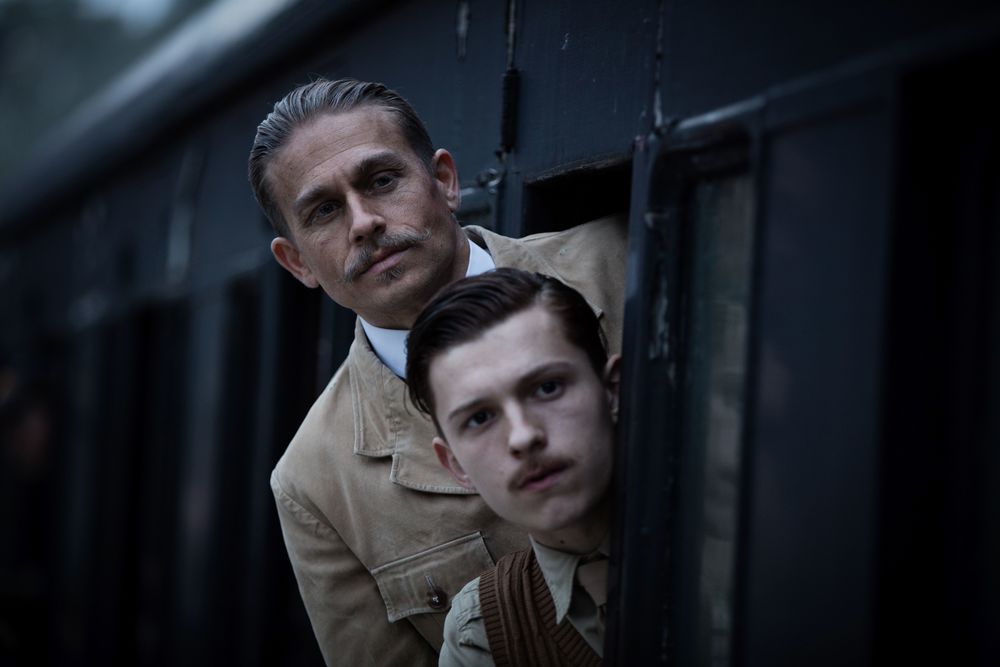
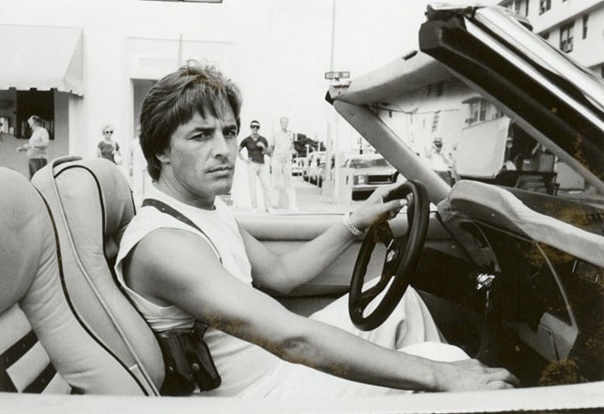
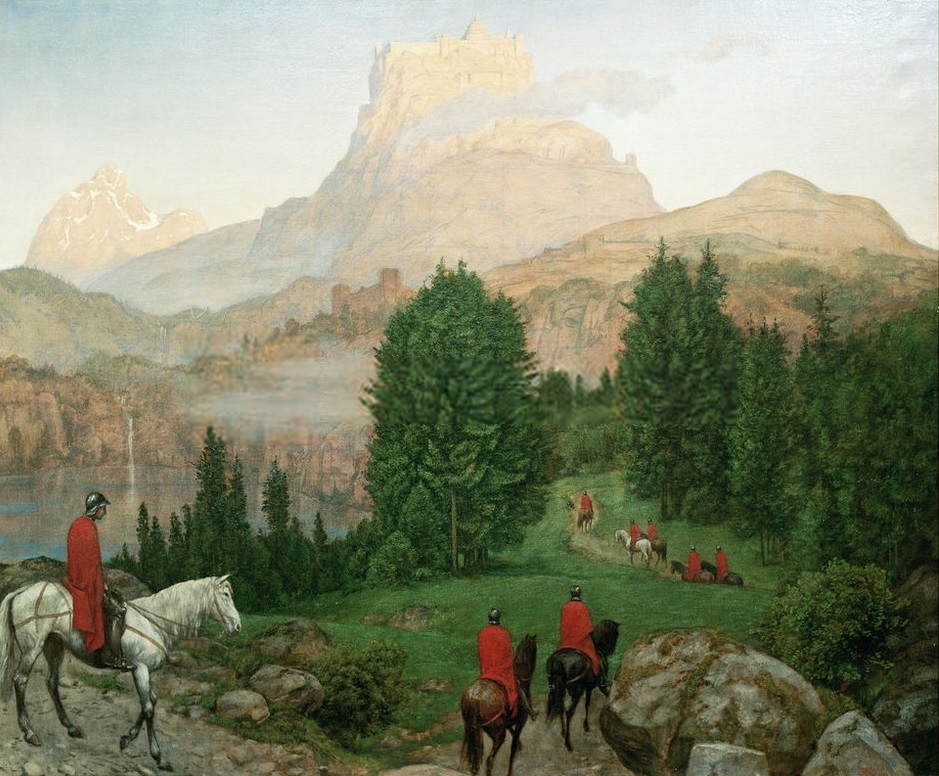
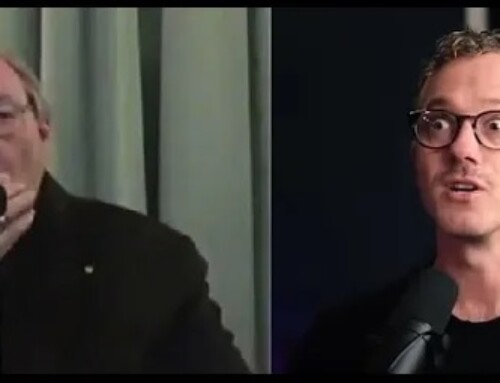
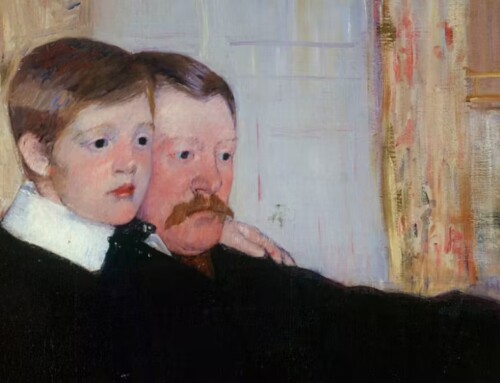
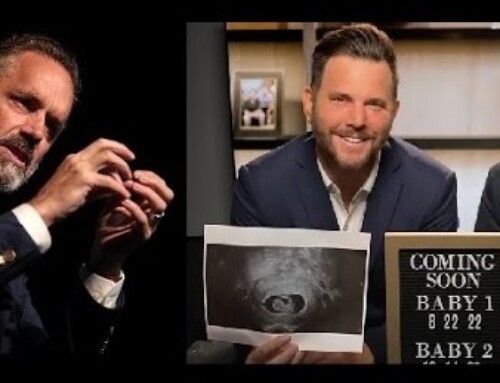
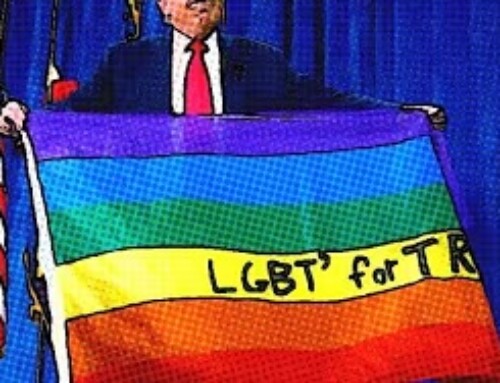

Thanks for this. I wish there was a way to break through the contempt and disbelief that the activist leadership at the Mennonite Church has spread so that my warnings and upholding official church teaching cannot be heard. When I have written of similar experiences to your own, I am dismissed by them to others as “delusional.” Since I refused to be silenced, the threats made to doxx me on the internet were fulfilled. WordPress would not take it down despite impersonation – it was clear that regardless of policy, they felt I deserved to be destroyed financially. I have to admit I was shocked at the apostasy you reveal on your site regarding the heretical leaders like Jesuit Martin.
Such courage Joseph Sciambria. You are a brilliant, articulate and truthful son of God. Unafraid to speak boldly, you empower others to stand-up for truth, despite the hostile culture of death.
I am a certified natural family planning teacher (Billings method) and post-aborted woman who assists with Rachel’s vineyard retreats (post-abortion healing). Joseph, you inspire me to go the distance, despite the rejection I often feel.
May our good Lord continue to give you strength and grace. May our Lady nurture you and place you under her mantle of protection.
Yours in Christ,
Teresa Fredericks
Courageous. Intelligent. Reflective.
Thank you.
So very brave. A beautiful man on a journey towards wholeness in the embrace of the one true Lord. Much love.
God Bless you Joseph Sciambra. Thank you for your courage. And may God continue to grace you with the necessary fortitude to continue to speak the TRUTH!